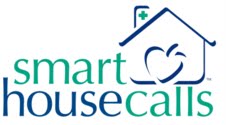Monk Mind: How to Increase Your Focus
 Leo Babauta Breaks Down The Art Of Focus
Leo Babauta Breaks Down The Art Of Focus
For those who have tests looming on the horizon, I thought I would post some tips on achieving zen-like focus. I often find that my focus falls far short of zen-like, so I decided get help from a professional. Leo Babauta is the founder and author of ZenHabits.net, one of the Top 25 blogs in the world.
Here's what he has to say about increasing focus:
I confess to being as prone to the distractions of the Internet as anyone else: I will start reading about something that interests me and disappear down the rabbit hole for hours (even days) at a time.
But my ability to focus on a single task has dramatically improved, and that one habit has changed my life.
While a few years ago I couldn’t sit down to work on something without quickly switching to email or one of my favorite Internet forums or sites, today I can sit down and write. I can clear away distractions, when I set my mind to it, and do one thing. And that changes everything: you lose yourself in that task, become so immersed that you pour everything you have into the work, and it becomes a meditative, transformative experience. Your happiness increases, stress goes down, and work improves.
I know that lots of people have trouble focusing one one task for very long, and so I thought I’d share a few things that have worked for me.
Focus Best Practices
There is no one way to find focus, but what works for me is to clear everything away and create a little space of tranquil focus. Some tips for doing that:
• Close the browser and your email program. If you need to work in the browser then make sure no tabs or windows are open other than the one you absolutely need.
• Turn off all notifications. Trying to focus while something is notifying you of an incoming email or tweet or Facebook update is impossible.
• Turn off the Internet. Shut off your connection, unplug your router, or best yet, go to a place where the is no Internet (yes, those still exist). This is the absolute best way to find focus.
• Close all programs and windows other than what you need for this one task.
• Have a very important task to do. Not just “check email” but “learn today's lecture on lung disease” or “write that kick-ass blog post I’ve been planning” or “write that new Android app”.
• Clear your desk. No need to spend all day on this — shove everything in a drawer or put it in a box to be sorted later. Don’t fiddle with this now. In fact, don’t fiddle with anything — don’t worry about the perfect study setup or perfect notebook for writing or the perfect anything.
• Plug in the headphones. If you have people around who might distract you, wearing headphones and playing some good, peaceful music is perfect.
Once you have this environment (and you shouldn’t spend more than a few minutes setting it up), get going on your task. Do nothing but that one task. Don’t switch to another task.Having trouble doing that?
Read on.
How to Increase Your Focus Abilities
If you can’t focus on one task for very long, don’t worry. That’s normal. Our brains have been trained by technology and society to switch tasks often. One way we’ve been trained is that switching to check email or Facebook/Twitter is rewarding — we are rewarded with a little nugget of satisfaction in that someone has sent us a message (social validation!) or we have something new and interesting to read (shiny and bright!). Switching tasks becomes a positive feedback cycle that is hard to beat by single-tasking.
The way to beat that is to set up a positive feedback cycle for focusing. Here’s how:
1. Start small. You only need to focus for one minute at first. Clear everything away, pick your one important task, and just do it for one minute without switching. This is hard to do in the beginning but if you consciously focus on focusing, you can do it. It’s just a minute.
2. Reward yourself. The reward for focusing for one minute can be one minute (or 30 seconds) of checking whatever you want. Email, Facebook, whatever. Or get up and take a one-minute walk. Stretch, drink some water, massage your neck, enjoy your small victory. Empires are created with small victories.
3. Repeat. Keep doing one minute focus, one minute reward (or 1 minute to 30 seconds if you like) for about half an hour (15 of each). You’re done. Repeat that later in the day. Rejoice in how much work you got done! And notice how you’ve set up a positive feedback cycle for focusing.
4. Increase in small steps. Tomorrow, make it two minutes on, one minute off. Repeat that for 30 minutes, do it later in the day too. Feel free to go wild and do three focus sessions in a day if you like, but it’s not necessary.
5. Keep taking baby steps. I think you can see the pattern by now. Make it three minutes on, one minute off on the third day, then 4:1, then 5:1. When you get to 10 minutes, be crazy and take a 2 minute break. When you get to 20 minutes, take a 3 minute break. At 30 minutes of focus, you’ve earned a 5 minute break. And once you’re at 30 minutes, you can stay there. No need to become a monk.
Set up a positive feedback cycle for single-tasking focus and you’ll reverse the years of training your mind has gotten to switch tasks. You’ll get more important work done, and it won’t seem hard. You’ll find that focus becomes a form of meditation. It’s a beautiful, beautiful thing!
 Exams,
Exams,  Focus,
Focus,  Inspirational,
Inspirational,  Interview,
Interview,  Motivation
Motivation 




"I wouldn't do it twice, but I would not 'not' do it once."
- ZDoggMD